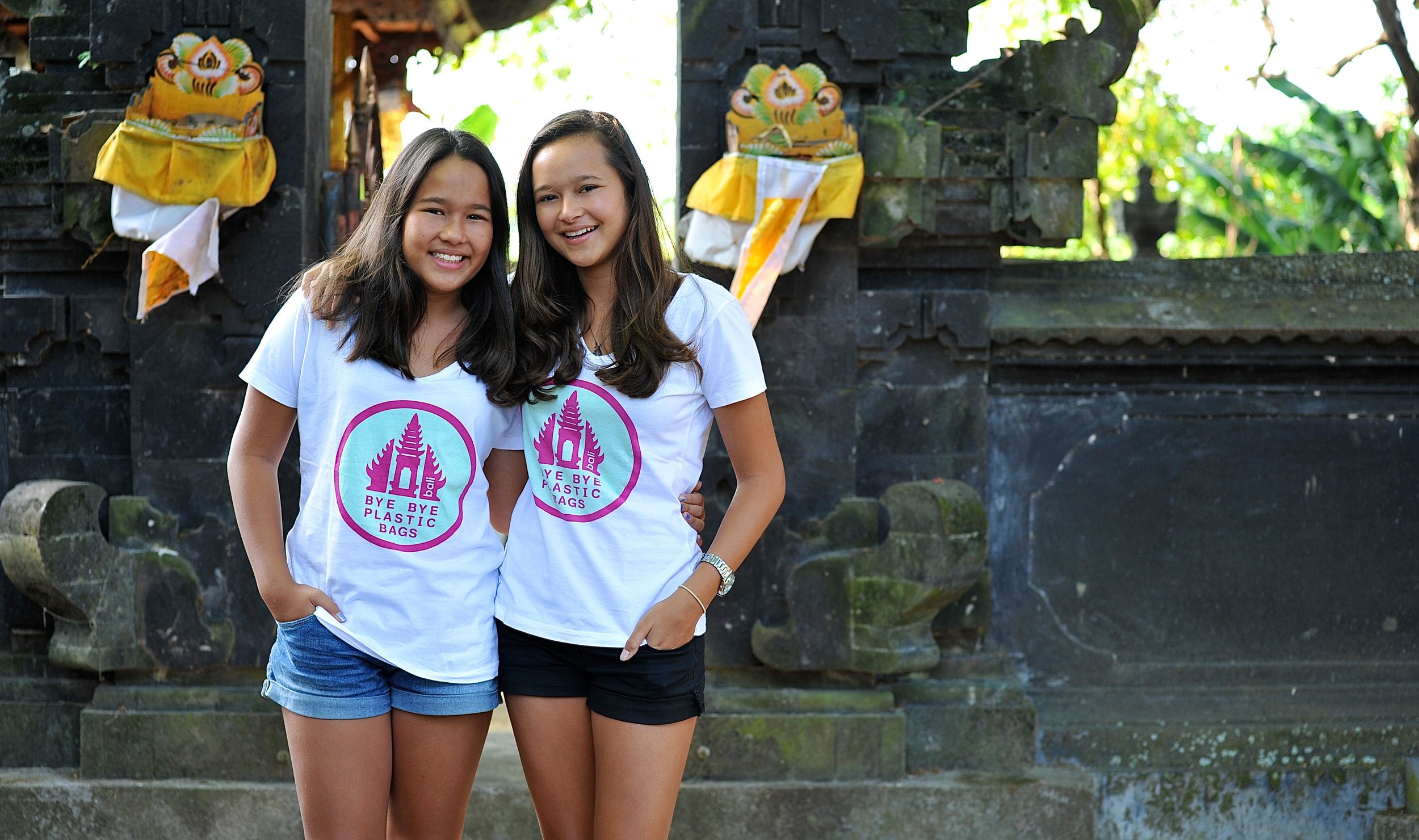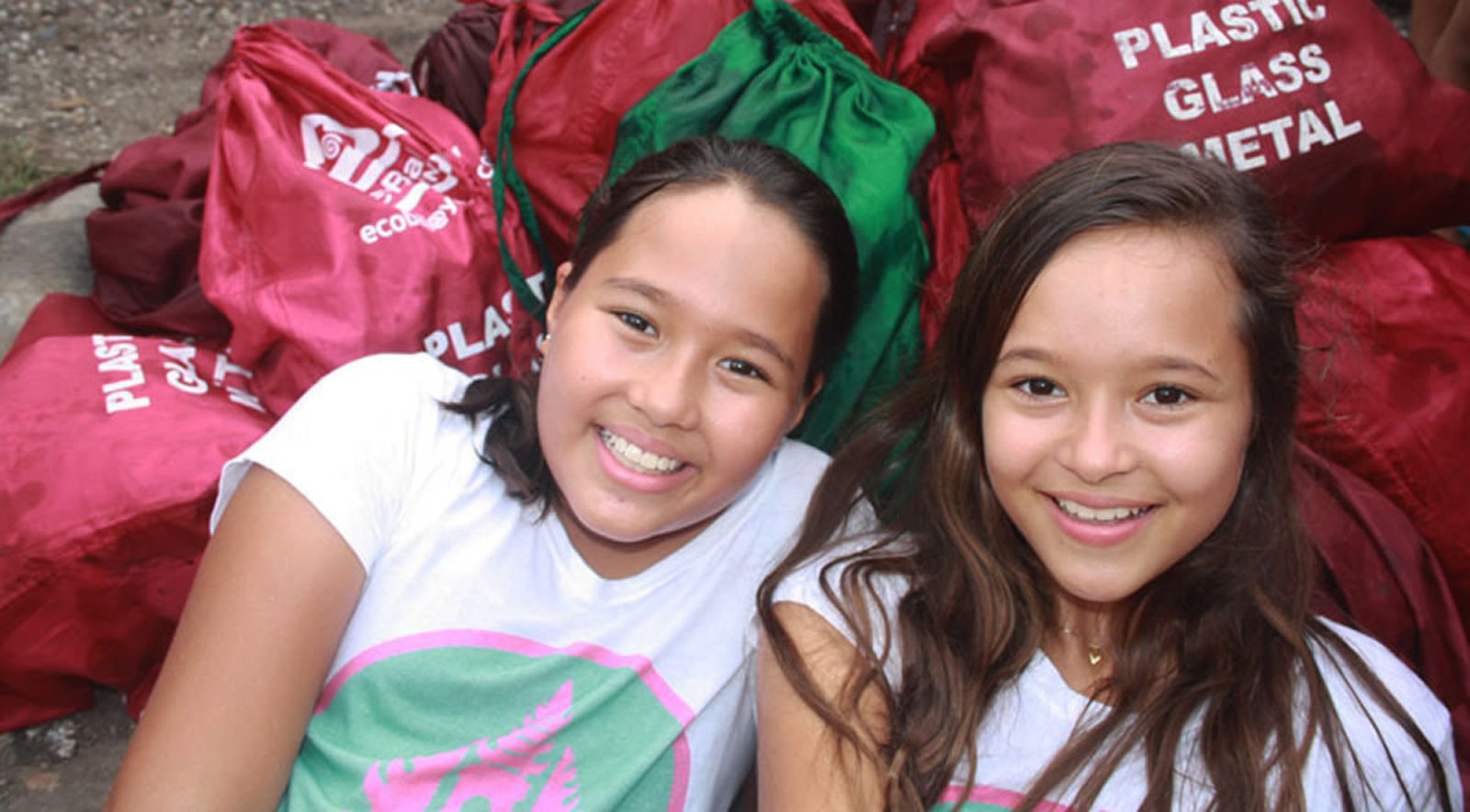How Two Sisters from Bali Banned Single-Use Plastics

The price we pay from using single use plastics is larger than we’ve bargained for. According to the Natural Resources Defense Council, scientists now estimate that there will be more plastic than fish in the ocean by weight in 2050. While many plastics advertise themselves as recyclable, unfortunately not many end up recycled and instead pollute our planet. Think about it, how many coffee cups a week do you throw away just because of the convenience of not carrying a cup around?
In Bali alone, about 300,000 tonnes of the 1.6 million tonnes of waste generated annually is plastic. Poor waste management and monsoon weather compound the problem, threatening the island’s status as Indonesia’s tourism gem.
The world now produces more than 380 million tons of plastic every year, which could end up as pollutants, entering our natural environment and oceans, affecting every aspect of our world.
With the rising numbers of pollutants and the effects of these pollutants, many are taking action to preserve and protect our planet.
How young Solutionists took action
At just 10 and 12 years old, two sisters from the beaches of Bali, Melati and Isabel Wijsen, saw a problem and decided to find a solution. Thousands of tons of plastic waste clog up the Indonesian island’s surrounding waters each year and wash onto the sandy beaches. They saw that other countries were making efforts to lessen their pollution and they decided that Bali and Indonesia can and need to do the same.
Melati and Isabel took action, documenting their journey on social media and building up quite a following as they went from beaches, streets, rivers, etc. They founded a grassroots movement: Bye Bye Plastic Bags (BBPB). BBPB is a movement powered by youth around the world to say no to plastic bags. One of their main goals is to focus on education and awareness.

“We cannot solve a problem that people are not aware of,” their website explains. “BBPB raises awareness and educates about the harmful impact of plastic on our environment, animals and health while also sharing how to be part of the solution. Having spoken to over 20,000 youth and created 2 educational booklets aimed for elementary schools in Indonesia, education has a huge place in the heart of BBPB.”
Making a global and local impact
BBPB’s movement has grown well beyond Bali, extending to 50 locations including the United States. Currently, they have around 1,000 applications pending to spread even further.
One example of a project they’ve worked on is One Island One Voice – which aims to reduce waste and plastic usage on the island by bringing together NGOs, shops, hotels, restaurants, orgs and individuals that have committed to make a collective impact.
Another project of BBPB is River Booms. This project focuses on collecting trash that would otherwise end up in the ocean or on the coastlines. This project is unique in that it encourages students and people to do it themselves and make a difference.
In 2017, Melati and Isabel threatened a hunger strike in 2017 that instantly captured the attention of Bali’s governor, who agreed to discuss the problem with the sisters. He then signed an order banning plastic bags, straws and styrofoam on the island, which went into effect in 2019 after sustained pressure.
This wonderful example of two powerful young women making a difference and getting the attention of their local government (and eventually the world) is proof that anyone, no matter how old you are or where you are from, can do something incredible.
As of yet, BBPB have spoken at 450 events to well over 100,000 students, providing 8,000 educational booklets and have inspired 50 teams across the globe to start their own impact.
Any one person (or two) can make an incredible impact
Melati and Isabel’s impact grew so vastly that it brought them to the United Nations, the World Economic Forum and the International Monetary Fund to share their views and findings on plastic waste. They’ve since given TED Talks and Forbes, CNN and Time Magazine have listed them among the world’s most influential teens.
Starting this effort at just 10 and 12 years old in a part of the world where waste and pollution was/is incredibly bad – they have made an astronomical difference. “It wasn’t rocket science, when we started seeing the growing plastic pollution problem around us everywhere: in the rice fields, in the ocean, and on the beaches, that we said, okay, what are we going to do about it?” Melati, now 20, told VICE World News.
She’s right! It wasn’t rocket science. So why is the rest of the world struggling to do their part? Are you doing your part?
How you can help fight single-use plastics
We could all follow Melati and Isabel’s lead a bit more and do our part to make a positive difference. By no means do we have to compete with their efforts, but just by starting small can make all the difference.
Not sure where to get started? Here are 10 ways you can eliminate plastic from your life! My favorite easy change is to use a reusable water bottle – I carry mine with me everywhere. While these actions may feel small, when enough of us work together, we can make a big impact.
Looking for a way to get involved with BBPB? You can donate to their cause here or start a team in your local area.Definitely follow Melati , Isabel, Youthtopia.world and Bye Bye Plastic Bags to stay up to date on what they accomplish next and get involved yourself!


Leave a Reply